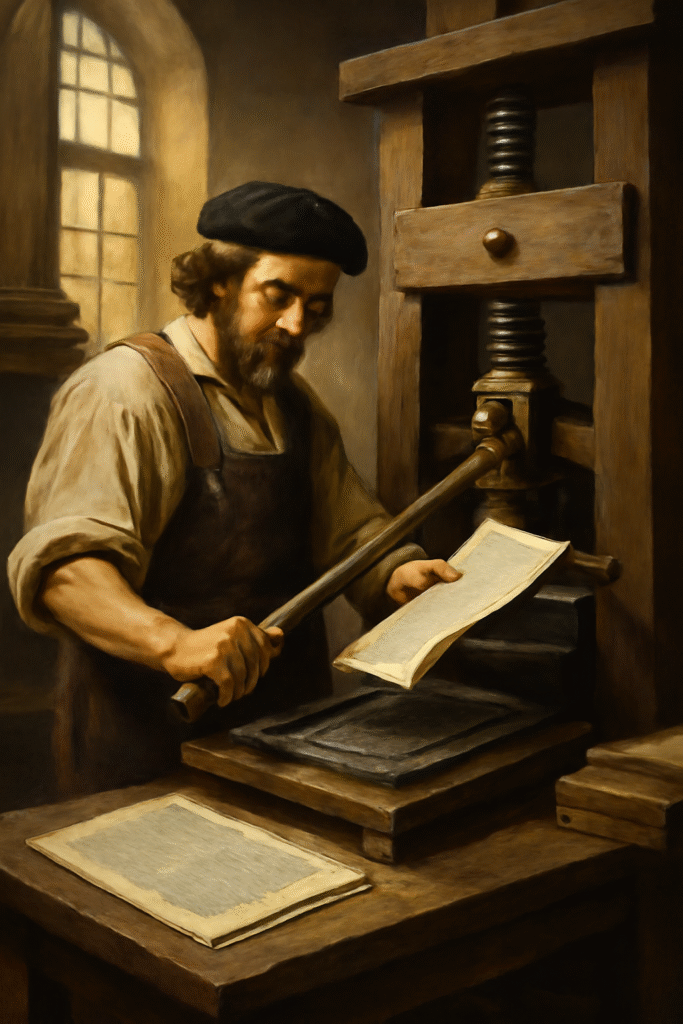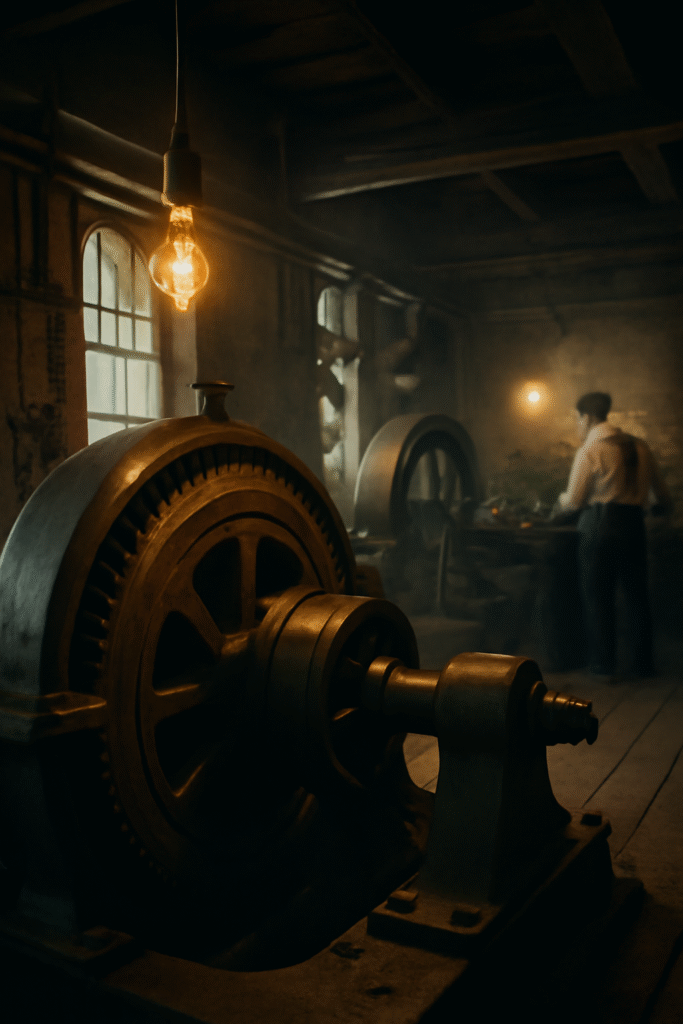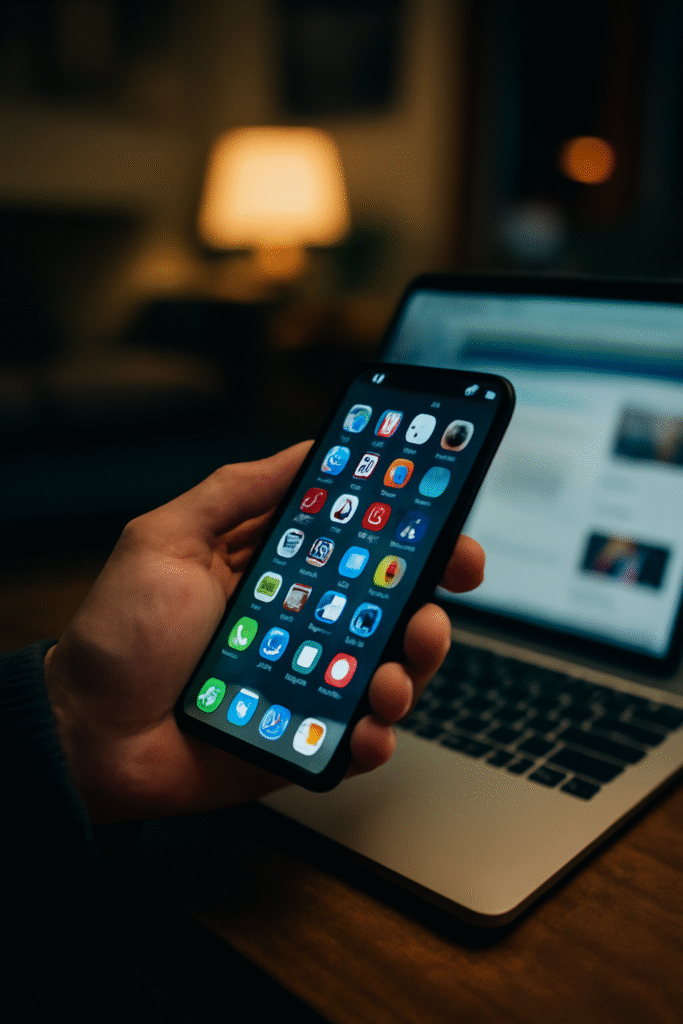O futuro que você vive começou há séculos. As decisões do passado moldaram o mundo atual. Entenda por quê.
Quando você pensar em inovação, não pense apenas no hoje.
Todos os dias acordamos com manchetes prometendo “a próxima grande novidade” — um avanço em IA, um gadget revolucionário ou algum novo marco científico expandindo os limites humanos.
No barulho do século XXI, é fácil acreditar que a inovação pertence exclusivamente ao nosso tempo — uma corrida digital movida por velocidade, silício e dados.
Mas a história conta outra versão.
A inovação sempre foi o pulso da humanidade — um ritmo herdado que vai da faísca do primeiro fogo ao algoritmo que seleciona o que aparece no seu feed.
O mundo que conhecemos não surgiu muito rapidamente; ele foi construído, camada por camada, sobre uma fundação de descobertas passadas que continuam ecoando em cada clique, cada lâmpada acesa, cada palavra impressa.
Vamos revisitar alguns desses momentos decisivos — não como relíquias distantes, mas como raízes vivas que ainda alimentam o mundo moderno.
1. A Imprensa, Quando as Palavras Aprenderam a Se Multiplicar

Na Europa de meados do século XV, os livros eram objetos preciosos, copiados à mão com enorme esforço.
O conhecimento se movia lentamente, guardado por poucos privilegiados que podiam lê-lo ou comprá-lo.
Então Gutenberg reinventou a própria comunicação — criando os tipos móveis e dando à humanidade a capacidade de replicar ideias tão facilmente quanto se acende uma vela a partir da chama de outra.
Por Que Foi Revolucionário
A prensa quebrou fronteiras intelectuais.
A informação, antes confinada a mosteiros e cortes reais, começou a circular amplamente.
Dessa enxurrada de palavras surgiram ondas de mudança:
Conhecimento Compartilhado:
Ler deixou de ser luxo e começou a se tornar um direito. As pessoas buscaram educação, e as sociedades tornaram-se mais letradas.
Ciência Conectada:
Descobertas deixaram de nascer e morrer isoladas. Pesquisadores puderam publicar, comparar e colaborar.
Fé Desafiada:
Escrituras impressas permitiram que fiéis lessem por conta própria, acendendo a Reforma.
Consciência Pública Nascida:
Panfletos e jornais deram origem ao discurso cívico — o ancestral da mídia e dos comentários digitais de hoje.
Sua Energia Hoje
Cada post, tweet ou artigo que você lê online pertence à linhagem de Gutenberg.
Foi ele quem deu forma ao próprio conceito de “compartilhar conhecimento”.
Suas redes sociais, seus livros eletrônicos, seu jornalismo digital — todos seguem a lógica que primeiro foi prensada no papel: informação recriada infinitamente, feita para todos.
A internet sequer poderia existir sem a ideia de que as palavras merecem viajar livremente?
2. Eletricidade: o poder invisível que redefiniu a vida

A civilização humana já terminou com o pôr do sol.
Por milênios, o ritmo do mundo dependia da luz do dia e da força dos músculos.
Então a humanidade encontrou um novo tipo de fogo — um fogo que corria por cobre, não por madeira.
Com os avanços de mentes como Faraday, Edison e Tesla, a luz foi liberta da chama, e o próprio tempo começou a se alongar.
Por Que Isso Remodelou a Civilização
A eletricidade não apenas iluminou cômodos; ela reorganizou a existência:
Dias Infinitos:
Cidades brilharam como constelações, e a indústria passou a funcionar sem pausa.
Novas Máquinas:
Fábricas produziram mais rápido, economias aceleraram e a automação nasceu.
Vozes por Fios:
Do telégrafo ao telefone, a eletricidade virou a corrente sanguínea da conexão humana.
Conforto e Cuidado:
Refrigeração, aquecimento e avanços médicos transformaram sobrevivência em bem-estar.
Como Isso Molda Sua Vida Hoje
Seu celular, laptop, transporte, hospital e lar falam a linguagem silenciosa da eletricidade — constante, invisível, indispensável.
Ela alimenta cada dispositivo e plataforma digital que define a identidade moderna.
Sem eletricidade, toda inovação mergulha no escuro.
Se um dia o mundo ficasse totalmente sem energia, qual parte da sua vida desapareceria primeiro — ou revelaria o que realmente significa estar conectado?
A Internet — A Teia que Reconfigurou a Humanidade

Menos de cinquenta anos atrás, a internet era pouco mais que um experimento de comunicação da Guerra Fria
Ela evoluiu silenciosamente dentro de universidades até explodir na vida pública nos anos 1990 e, em poucas décadas, transformou a civilização mais rápido do que qualquer tecnologia anterior.
Por Que Ela Transformou o Mundo
A internet transformou distância em ilusão:
Informação Ilimitada:
Bibliotecas inteiras condensadas em barras de busca; aprender passou a não exigir permissão.
Conectividade Instantânea:
Famílias, desconhecidos e colegas se encontraram além das fronteiras em tempo real.
Economias Digitais:
Comércio, compras e empreendedorismo tornaram-se globais e, muitas vezes, invisíveis.
Fusão Cultural:
Música, língua e arte viajaram à velocidade da luz, criando um patrimônio digital compartilhado.
Trabalho e Educação Libertados:
Trabalhos remotos e salas de aula virtuais borraram a geografia, ampliando o acesso a oportunidades.
Seu Pulso na Vida Cotidiana
Do seu scroll matinal às reuniões virtuais, a internet é a infraestrutura da própria identidade.
Mas com imenso acesso vem a reflexão constante: como equilibrar liberdade de expressão com verdade, e conexão com excesso de estímulos?
Ela não é apenas uma ferramenta — é o nosso espelho coletivo.
Que tipo de mundo construiremos à medida que esse espelho se torna mais inteligente que seus criadores?
A História Contínua da Ingenuidade Humana
Nenhum avanço existe isolado.
A imprensa espalhou conhecimento, a eletricidade alimentou possibilidades, e a internet conectou tudo o que veio antes em uma única rede contínua de criatividade humana.
Cada era adiciona mais um fio a uma narrativa maior — uma narrativa que cresce não apenas pela novidade, mas pela continuidade.
A inovação, quando vista com honestidade, não é a história das máquinas. É a história de mentes que buscam, se adaptam e transmitem o que aprenderam.
Quando tratamos o passado como um parceiro, e não como um museu, lembramos que o progresso não é uma linha reta — é um diálogo entre gerações.
As ferramentas mudam, mas o impulso por trás delas permanece o mesmo: entender mais, compartilhar mais e viver mais plenamente.
E isso — muito mais do que qualquer dispositivo ou descoberta — é o verdadeiro poder da invenção humana.
